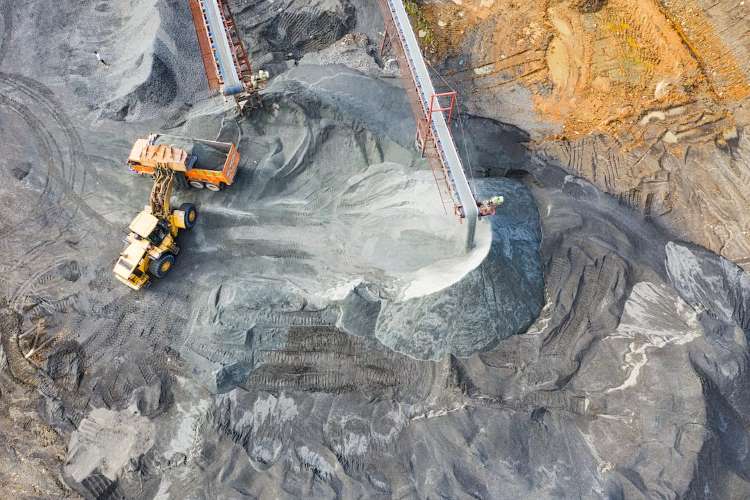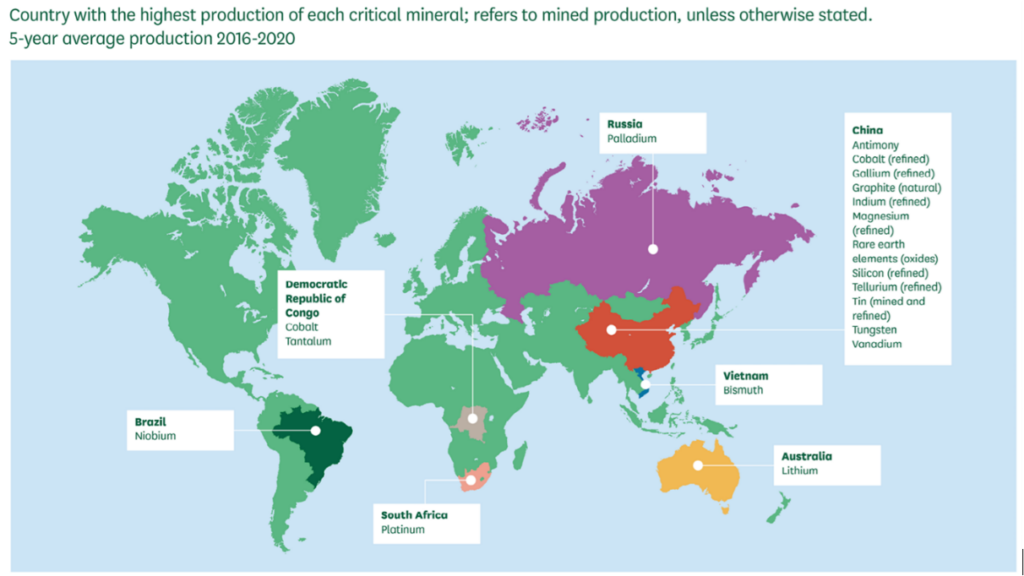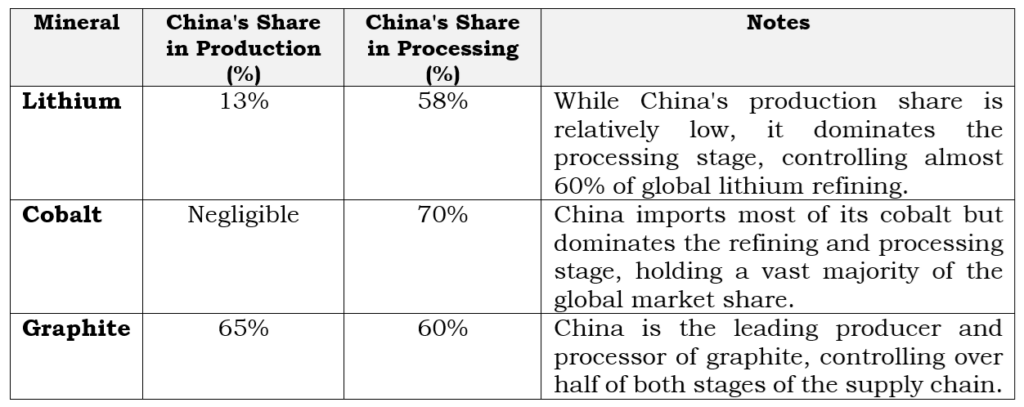
With nations and corporations increasingly focusing on economic and environmental sustainability, importance of critical minerals like lithium, cobalt, graphite, and rare earth elements cannot be overstated. These minerals are the building blocks of modern technologies — smartphones, electric vehicles, renewable energy systems, and more. Yet, the supply chain for these vital resources is precariously narrow, dominated largely by China. This dominance poses significant challenges to global supply security, particularly for nations like India, which are on the cusp of technological and green energy revolutions.
India’s reliance on imports for these critical minerals, coupled with its burgeoning needs as it ramps up domestic production of electronic parts and lithium-ion batteries, underscores a strategic vulnerability. The necessity for India to develop its critical mineral sector is not just about economic growth but also about national security and technological sovereignty.

The reliance on imports also presents an opportunity for India. The growing global demand for critical minerals, coupled with concerns about China’s dominance, is creating attractive investment opportunities for reliable and responsible producers. India, with its vast untapped reserves and strategic location, can capitalise on this opportunity by developing its own critical mineral sector into a global powerhouse.
READ I India must rethink SEZ programme, embrace inclusive growth
Towards critical minerals self-sufficiency
India sits on significant reserves of rare earth elements and other critical minerals, yet it lags in commercial production, primarily due to a lack of domestic processing facilities. This gap presents an immediate opportunity for strategic investment in technology and infrastructure to unlock India’s domestic potential. Developing commercial-scale technology for value addition, particularly in processing and refining, is crucial. This step alone can transform India from a net importer to a self-reliant entity, capable of meeting its own needs and even exporting to the global market.
India’s efforts to secure critical minerals through partnerships with countries like Australia and Argentina, and its involvement in the Mineral Security Partnership, signal a strategic move towards diversifying its mineral sources and reducing dependence on any single country. These partnerships should be expanded to include joint ventures in mining operations, technology exchange, and shared investments in processing capabilities. Such international collaborations can serve as a hedge against geopolitical risks and supply chain disruptions.

Investment in research and development is non-negotiable. India needs to pioneer advanced technologies for the efficient extraction and processing of critical minerals. This includes developing environmentally sustainable mining practices, reducing the cost of extraction, and increasing the efficiency of processing technologies.
Innovation in recycling technologies for critical minerals from used electronics and batteries can further enhance India’s self-sufficiency. India’s efforts towards self-sufficiency should also address environmental concerns. Sustainable mining practices are crucial to ensure minimal environmental impact and gain social acceptance for mining projects. Investments in clean technologies like hydrometallurgy and bioleaching can significantly reduce the environmental footprint of critical mineral extraction and processing.
Policy and regulatory support
A robust policy framework that incentivises the exploration, extraction, and processing of critical minerals is essential. Policies should focus on reducing bureaucratic hurdles, offering tax incentives, providing financial support for startups in the critical minerals sector, and establishing a clear regulatory pathway for the establishment of processing plants. A focused approach towards building a skilled workforce trained in mining and processing technologies will bolster these efforts.
India’s ambition should not be limited to extracting and processing critical minerals but should extend to dominating the value chain. This involves manufacturing high-tech products and components domestically, leveraging the country’s vast engineering and IT talent pool. By focusing on value addition—transforming raw minerals into intermediate and finished products—India can capture a larger share of the global market, enhancing its economic and strategic stature.
Collaboration with research institutions and universities is crucial to foster innovation and develop cutting-edge technologies for exploration, extraction, and processing of critical minerals. Additionally, promoting partnerships with global tech companies can facilitate technology transfer and access to international markets.
India’s path to becoming a major player in the global critical minerals market requires a concerted effort from the government, industry, and research institutions. It is a path fraught with challenges but rich with opportunities. By focusing on developing domestic capabilities, forging strategic international partnerships, investing in technology and innovation, and creating a supportive policy environment, India can secure its technological future and play a pivotal role in the global supply chain of critical minerals.
The journey towards self-sufficiency is not just about economic growth — it is about securing India’s place in a tech-driven world, ensuring its energy security, and safeguarding its national security interests. The time for action is now, and the stakes could not be higher.
Anil Nair is Founder and Editor, Policy Circle.

